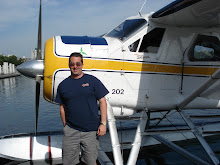 Kurt Tank (right) in conversation with Specht and Sommer
Kurt Tank (right) in conversation with Specht and Sommer
Kurt Tank was a resourceful aeronautical engineer and test pilot, heading the design department at Focke-Wulf from 1931-45. He designed several important aircraft of World War II, including the Focke-Wulf Fw 190 fighter aircraft.
Before Focke Wulf, Tank was employed by Albatros Flugzeugwerke, but after their bankruptcy in 1929, the company was broken up with most of the designers going to Focke-Wulf and a few others going to Arado in 1931. Tank then started work on the design of the Fw 44, Focke Wulf's first commercially successful design, launched in 1934. This led to burgeoning growth for the company as the country prepared for war.
The Fw 190 Würger (butcher-bird), produced from 1939 to 1945, was a mainstay Luftwaffe single-seat fighter during World War II. During the war, Tank was honoured for his work. In January 1943, he was named honorary Professor with a chair at the technical school in Braunschweig, in recognition of his services to the development of flight.
At the end of the war, like many other German technicians, he continued his professional life in Latin America. The Argentine Government offered him a job at its aerotechnical institute, the Instituto Aerotécnico in Córdoba. He moved there, with many of his Focke-Wulf co-workers, in 1947. The Instituto Aerotécnico later became Argentina's military aeroplane factory, the Fábrica Militar de Aviones. There, he designed the IAe Pulqui II based on the Focke-Wulf Ta 183 design that had reached mock-up stage at the end of the war. It was a state-of-the-art design for its day, but the project was axed in 1953 due to Argentina's financial crisis. When President Juan Peron fell from power in 1955 the ex Focke-Wulf team dispersed, many to the United States.
Tank instead moved to India. There he designed, for Hindustan Aeronautics, the Hindustan Marut fighter-bomber, the first military aircraft constructed in India. The first prototype flew in 1961; the Marut was retired from active service in 1985.
Tank returned to live in Berlin during the seventies, basing himself in Germany for the rest of his life.
